The AI search revolution has fundamentally changed how customers discover brands. With 85% of consumers now using AI-powered search tools like ChatGPT, Google AI Overviews, and Perplexity for research, traditional SEO monitoring falls short. You can rank #1 on Google, but if AI engines aren't recommending your brand, you're invisible to a massive audience.
Here's what most marketing teams don't realize: AI search operates on probability, not rankings. Your brand might appear in one AI response but disappear in the next, even with identical prompts. Manual checking is impossible at scale, you need specialized tools that can run thousands of prompts and track patterns.
After testing 15+ best AI search visibility tools over six months, I've identified the 14 most effective options. This guide will help you choose the right tool without wasting time on sales demos or making costly mistakes.
The numbers tell the story: AI-powered search adoption has exploded 340% in the past year. Google AI Overviews now appear in 18% of all searches, while ChatGPT processes over 1 billion queries daily. Perplexity has grown to 15 million monthly users, and Claude's adoption continues accelerating.
This shift changes everything about brand discovery. Traditional search shows multiple options, users click through and compare. AI search provides direct answers, often mentioning just 2-3 brands. If you're not in that AI-generated response, you don't exist.
Consider this: A potential customer asks ChatGPT "What's the best email marketing platform for small businesses?" The AI might recommend Mailchimp, ConvertKit, and Constant Contact, but completely ignore your superior solution. That's lost revenue you can't track with traditional analytics.
Your current monitoring stack, social listening tools, Google rank tracking, brand mention alerts, captures maybe 10% of AI-generated brand references. Here's why:
Social media monitoring only records open statements, making it blind to the secret life that AIs lead outside the glare of public scrutiny. SEO rank tracking indicates your position in conventional search engine results. However, while Google may underlie the majority of online activity, search engines do not simply recycle Google ranking algorithms. They take advantage of online content to yield, comprehend, and serve for our benefit, in a way that by no means returns us to the simple content-based rule of thumb that we used in the 20th century.
Manual checking is futile. Responses of AI depend on the conversation's context, where the user is located, what version of the model is being used, and dozens of other factors. To get some statistically meaningful data, you'd have to run thousands of prompts daily. That’s why we’ll focus on the best AI search visibility tools in the market in 2025.
Smart marketing teams are already using AI visibility tools to:
Quick Verdict: Best for enterprise teams with serious budgets who need comprehensive AI search intelligence across all major platforms.
Overview: Profound specializes in Generative Engine Optimization (GEO), monitoring brand presence across ChatGPT, Claude, Perplexity, and Google AI Overviews with sophisticated analytics and competitive benchmarking. It’s considered the top among best AI search visibility tools by many.
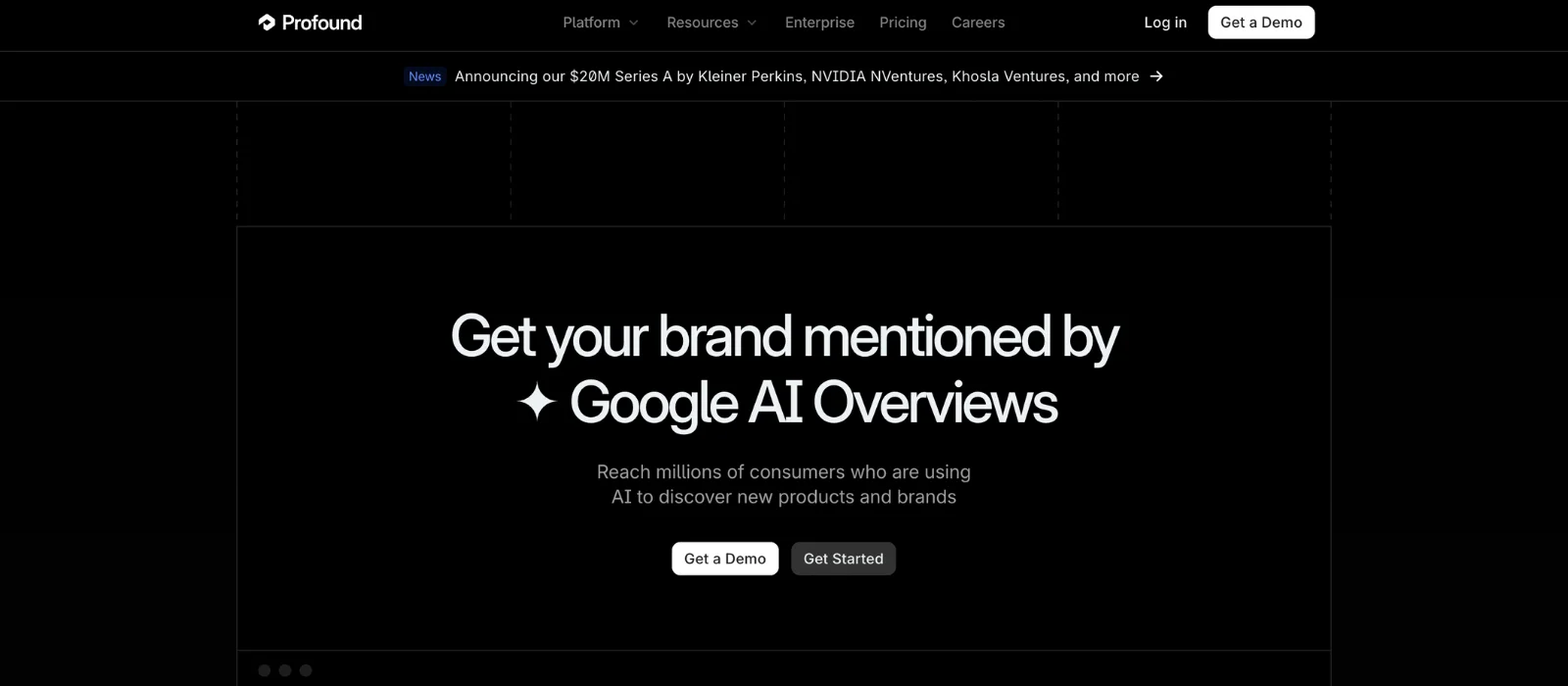
Key Features:
Best For: Enterprise marketing teams, agencies managing multiple clients, brands with significant AI search exposure
Pricing: Standard Plan at $499/month (48% above market average), Enterprise custom pricing, SOC 2 Type II compliant
Pros:
Cons:
Rating: 4.5/5 - Excellent for enterprise needs, but pricing limits accessibility
Profound stands out with its sophisticated approach to AI search monitoring. The platform's strength lies in cross-platform comparison capabilities and detailed conversation analysis. Their prompt suggestion engine helps identify blind spots in your monitoring strategy, while citation tracking reveals which content sources AI engines trust most.
Quick Verdict: Best for SEO specialists and agencies who want accurate, scalable AI search visibility tracking while staying on budget.
Overview: SE Ranking blends powerful SEO software with advanced AI search optimization tools. Its AI Search features let you track and optimize brand visibility across Google AI Overviews, AI Mode, ChatGPT, and Gemini, with more platform support on the way. SE Ranking helps you understand and improve how your site appears in AI-generated answers through accurate data, intuitive dashboards, and seamless workflows.

Key Features:
Best For: SEO specialists, agencies, and businesses who need visibility data across AI and traditional search channels
Pricing: Pro plan at $119/month, Business plan at $259/month. AI Search add-on starts at $89/month for higher limits and AI competitor research features.
Pros:
Cons:
Rating: 4.8/5 - Good for professional needs, easy to use, but still growing and changing
SE Ranking helps users make confident AI search-optimization decisions with precise, up-to-date data and metrics they can act on. The platform is continuously expanding its AI coverage and adding new features to ensure SEO specialists have every data point they need to improve brand presence in AI-powered search results.
Quick Verdict: Best value for small to medium businesses needing essential AI visibility tracking without enterprise complexity.
Overview: Otterly.AI provides accessible AI search monitoring across Google AI Overviews, ChatGPT, and Perplexity with straightforward pricing and user-friendly interface designed for non-technical marketers.
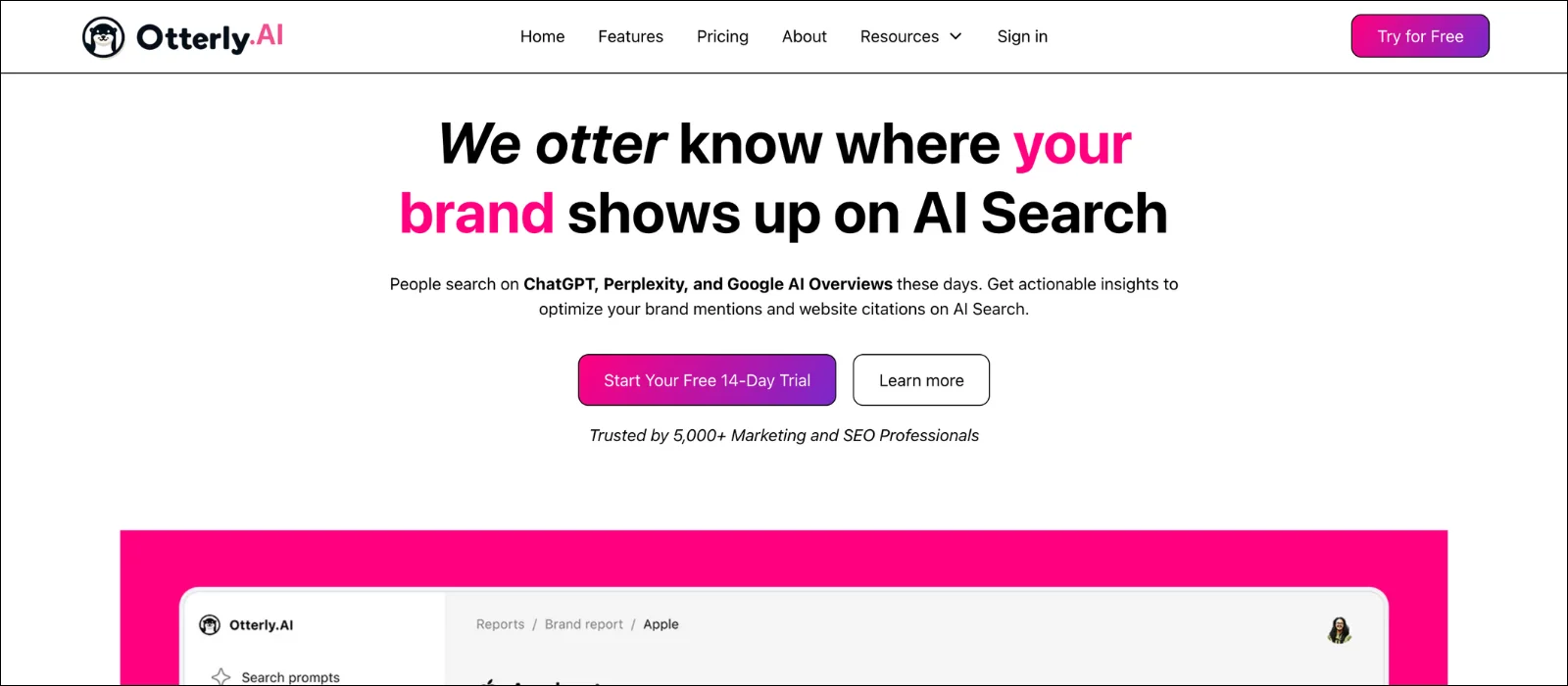
Key Features:
Best For: Small to medium businesses, marketing teams with limited technical resources, budget-conscious organizations
Pricing: Lite Plan $29/month (10 prompts), Standard $189/month (100 prompts), Pro $989/month (1,000 prompts), 7-day free trial
Pros:
Cons:
Rating: 4.2/5 - Excellent value proposition for smaller teams
Otterly.AI excels at making AI visibility tracking accessible to smaller businesses. The platform's strength is its simplicity—you can start monitoring in minutes without technical setup. The geographic tracking feature is particularly valuable for local businesses wanting to understand regional AI search patterns.
Quick Verdict: Best for large enterprises already using comprehensive SEO platforms who want to add AI visibility to their existing workflow.
Overview: seoClarity integrates AI-powered search visibility tracking into their enterprise SEO platform, providing deep analytics and extensive integration capabilities for large marketing organizations.
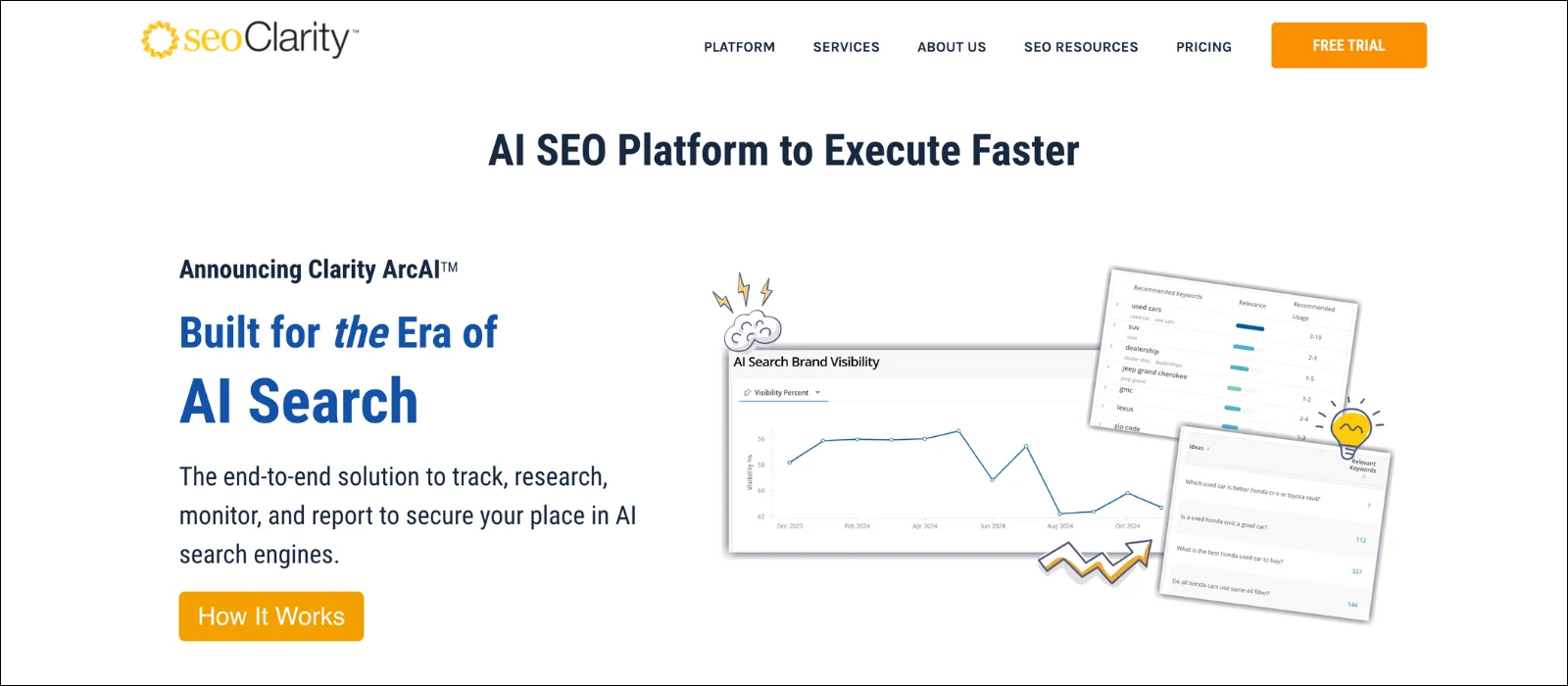
Note: We saw this tool a lot on Reddit and LinkedIn under best AI search visibility tools threads.
Key Features:
Best For: Enterprise organizations, large marketing teams, companies requiring deep tool integration
Pricing: Enterprise-focused custom pricing, typically higher investment for comprehensive platform access
Pros:
Cons:
Rating: 4.3/5 - Excellent for enterprises, but complexity limits broader appeal
seoClarity integrates AI visibility into a broader SEO strategy, which is ideal for organizations that want unified search intelligence. But the platform's machine learning capabilities really set it apart. They help identify patterns across traditional and AI search, and those patterns form the basis of strategic insights that make comprehensive search optimization possible.
Quick Verdict: Ideal for companies that place a great deal of emphasis on influencer marketing and seek to integrate AI-enhanced visibility with the effectiveness of their performance in social media.
Overview: Scrunch takes AI-enhanced search visibility and combines it with influencer analytics to create a unique insight set for brands that thrive on social media partnerships and influencer collaborations.
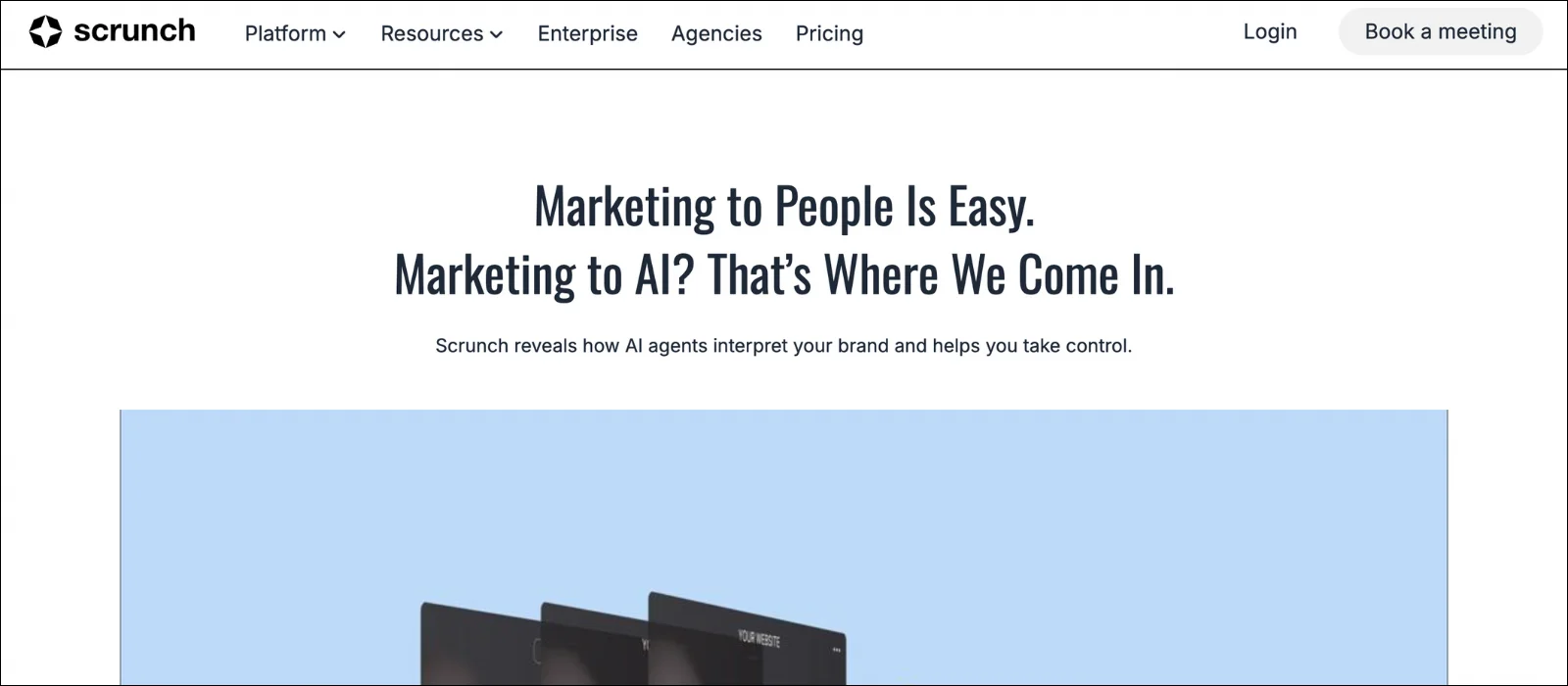
Key Features:
Best For: Influencer marketing agencies, social media-heavy brands, companies with partnership-driven marketing strategies
Pricing: Custom pricing based on influencer network size and monitoring requirements
Pros:
Cons:
Rating: 3.8/5 - Excellent for specific use case, limited broader application
Scrunch fills a unique niche by connecting AI search visibility with influencer performance. This approach helps brands understand how their social media partnerships impact AI recommendations, providing insights unavailable from traditional monitoring tools.
Quick Verdict: Best for businesses wanting deep user behavior insights to understand why certain brands appear in AI responses.
Overview: BluefishAI focuses on analyzing user search behavior and intent patterns, providing insights into why AI engines recommend certain brands and how to optimize for better visibility.
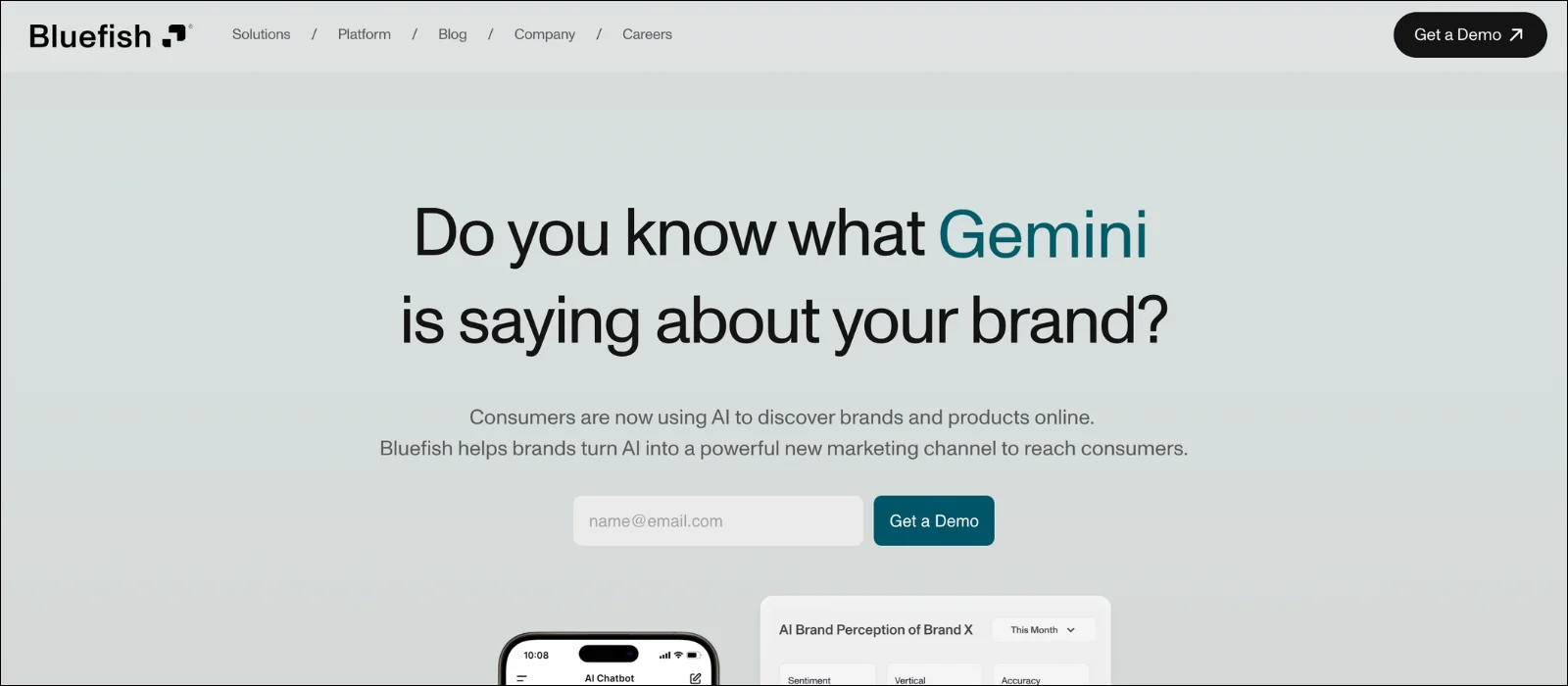
Key Features:
Best For: User experience-focused businesses, companies prioritizing behavioral insights, organizations with intent-driven marketing strategies
Pricing: Custom pricing based on analysis depth and data requirements
Pros:
Cons:
Rating: 4.0/5 - Valuable insights for sophisticated users
BluefishAI's behavioral focus provides unique value for businesses that want to understand the psychology behind AI search recommendations. The platform helps answer why certain brands appear more frequently, enabling strategic positioning improvements.
Quick Verdict: Best for solo entrepreneurs and very small businesses needing basic AI visibility tracking on a tight budget.
Overview: Peec AI is on top of the best AI search visibility tools, offering simplified AI visibility tracking designed specifically for small businesses and personal brands, focusing on essential features without overwhelming complexity.
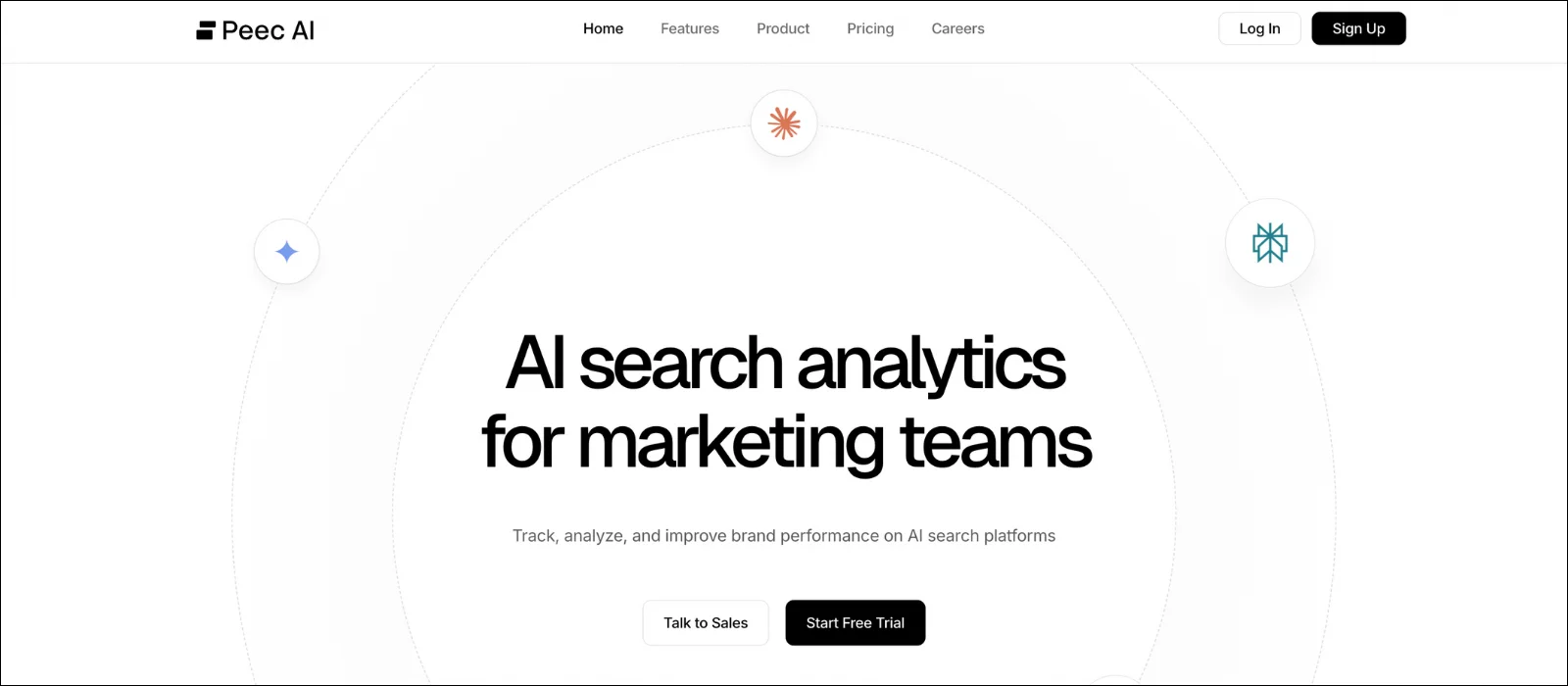
Key Features:
Best For: Solo entrepreneurs, very small businesses, personal brands, budget-conscious organizations
Pricing: Budget-friendly structure designed for small business affordability (specific rates not publicly disclosed)
Pros:
Cons:
Rating: 3.5/5 - Good value for very basic needs
Peec AI serves the underserved market of very small businesses that need basic AI visibility tracking without enterprise complexity. The platform's simplicity is both its strength and limitation, making it ideal for businesses just starting with AI search monitoring.
Quick Verdict: Best for businesses needing continuous, automated AI visibility monitoring with minimal manual intervention.
Overview: Trackerly.AI emphasizes automation and real-time tracking, using advanced algorithms to monitor search visibility continuously with instant updates and minimal user management required.
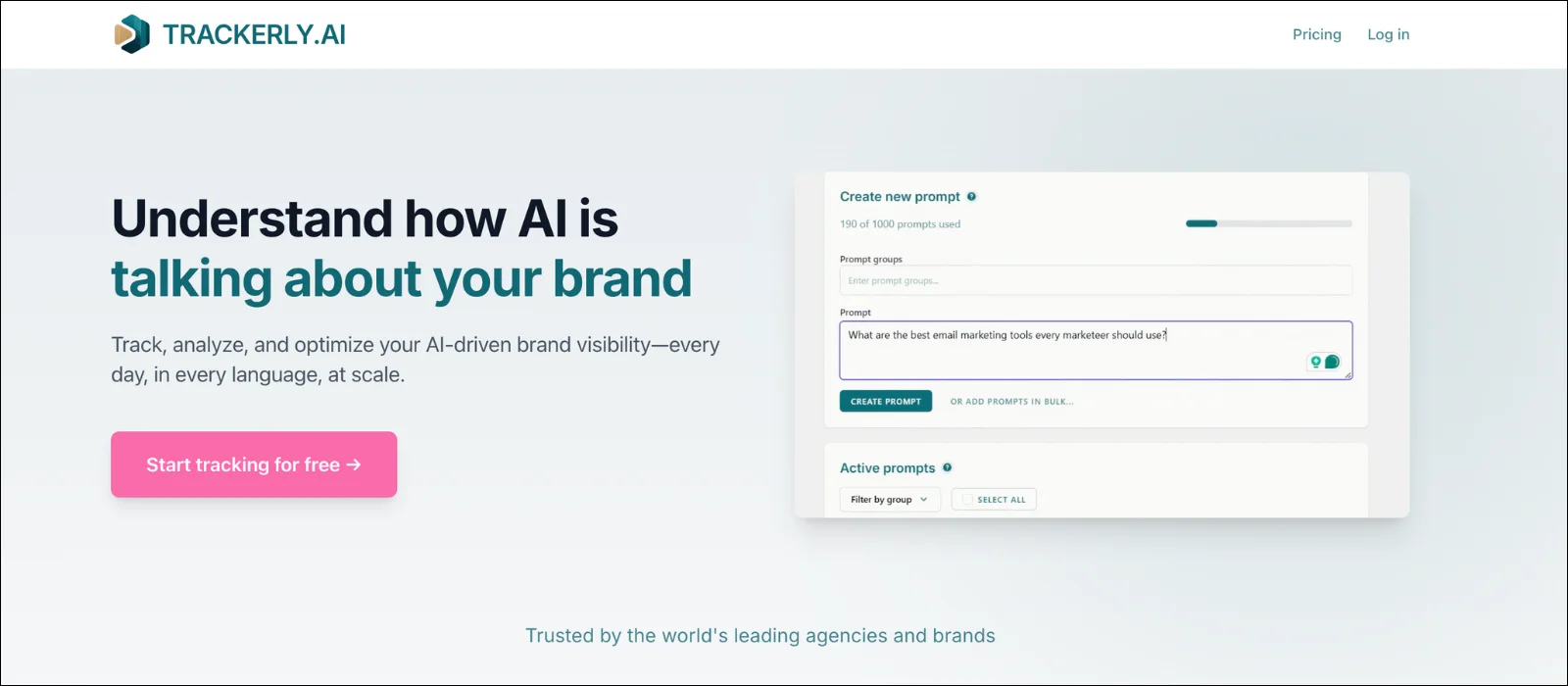
Key Features:
Best For: Fast-paced digital marketing environments, businesses requiring constant monitoring, teams preferring automated solutions
Pricing: Tiered pricing based on automation level and monitoring frequency (specific rates not publicly available)
Pros:
Cons:
Rating: 4.1/5 - Excellent for automation-focused teams
Trackerly.AI's automation-first approach suits businesses that need continuous monitoring without dedicated staff time. The platform's strength lies in its ability to track changes instantly, making it valuable for industries where AI visibility can shift rapidly.
Quick Verdict: Best for content-focused businesses wanting to identify and fix gaps in their AI search visibility strategy.
Overview: Knowatoa combines AI monitoring with deep content analysis, helping businesses identify why they're missing from AI responses and providing specific recommendations for improvement.
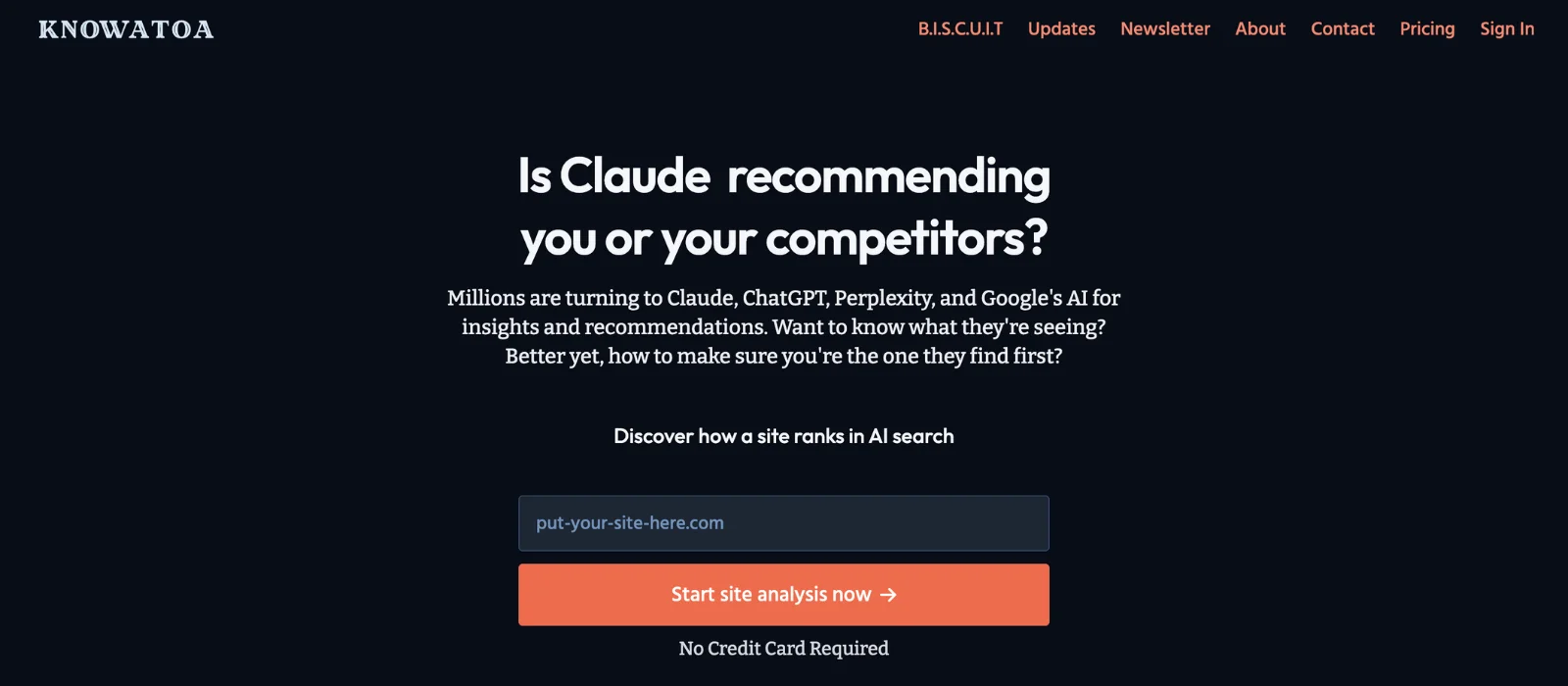
Key Features:
Best For: Content-focused businesses, organizations prioritizing content strategy, companies wanting comprehensive digital presence analysis
Pricing: Custom pricing based on content analysis depth and optimization requirements
Pros:
Cons:
Rating: 4.0/5 - Excellent for content-driven organizations
Knowatoa is one of those best AI search visibility tools that excel at helping businesses understand why they're not appearing in AI responses. The platform's content analysis capabilities reveal specific gaps in your digital presence, making it particularly valuable for businesses that rely heavily on content marketing.
Quick Verdict: Best for SEO professionals and agencies already using Semrush who want to add AI visibility to their existing workflow.
Overview: Semrush integrates AI visibility tracking into their comprehensive SEO platform, providing seamless workflow integration for teams already using their tools for traditional search optimization.
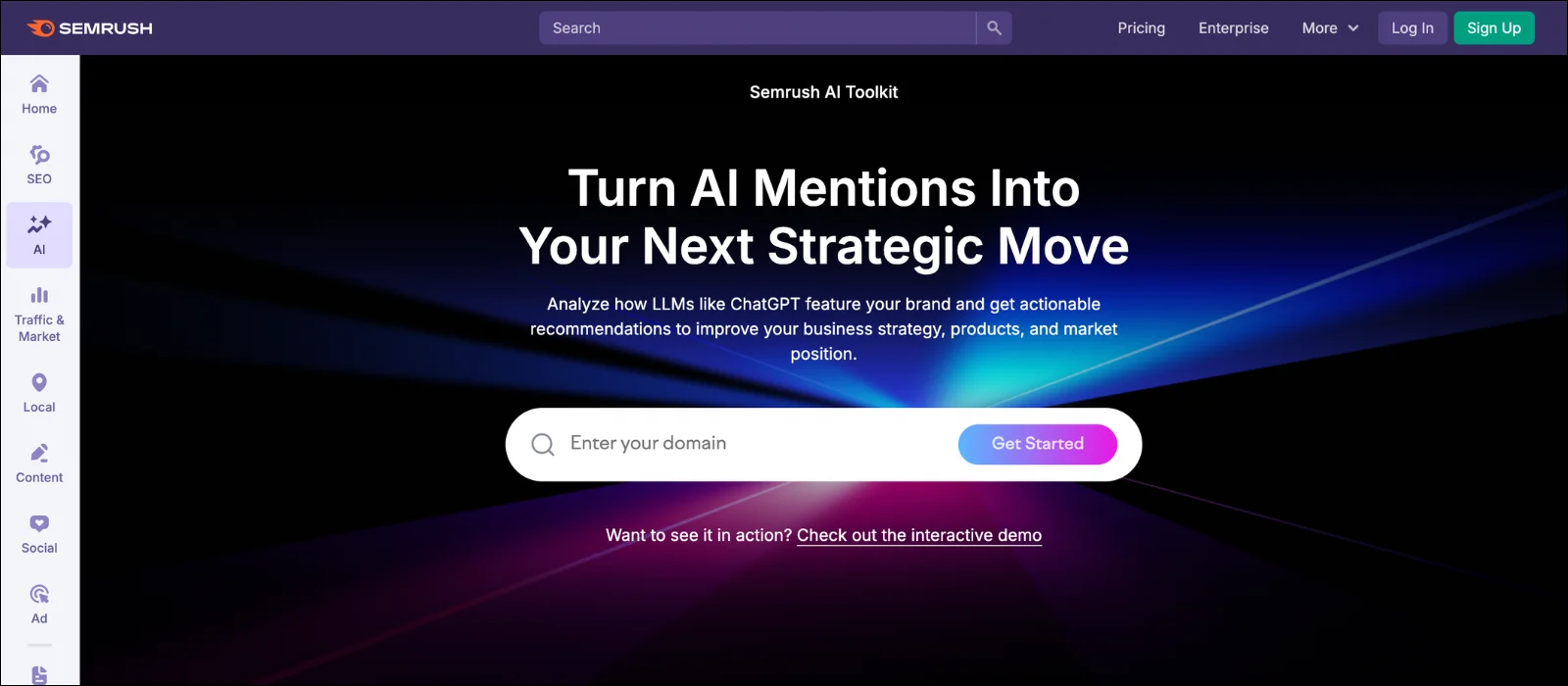
Key Features:
Best For: SEO professionals, digital marketing agencies, enterprise organizations, comprehensive SEO strategy teams
Pricing: Multiple tiers from professional to enterprise, industry-standard pricing for comprehensive platform, custom enterprise solutions available
Pros:
Cons:
Rating: 4.4/5 - Excellent for existing Semrush users, comprehensive but complex
Semrush's approach integrates AI visibility into their established SEO platform, making it ideal for teams that want unified search intelligence. The platform's strength lies in combining traditional SEO data with AI visibility insights, providing comprehensive search strategy guidance.
Quick Verdict: Best for large-scale businesses wanting predictive AI search insights to stay ahead of visibility trends.
Overview: AthenaHQ.AI uses advanced predictive analytics to forecast AI search visibility trends, helping businesses anticipate changes and adjust strategies proactively rather than reactively.
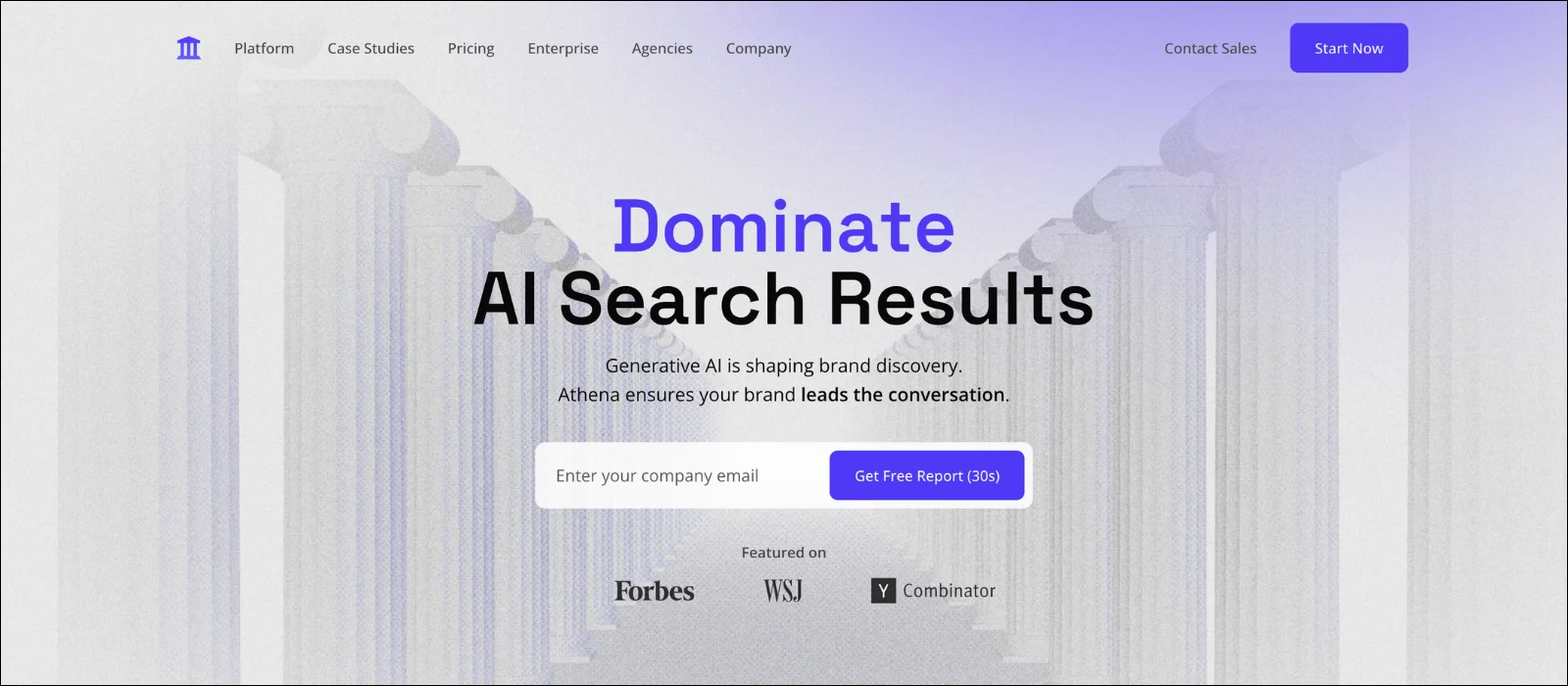
Key Features:
Best For: Large-scale businesses, enterprise organizations, companies focusing on predictive SEO, strategic planning teams
Pricing: Enterprise-focused custom pricing based on data analysis scale and predictive modeling requirements
Pros:
Cons:
Rating: 4.2/5 - Excellent for strategic, forward-thinking organizations
AthenaHQ.AI's predictive approach sets it apart from reactive monitoring tools. The platform helps businesses anticipate AI search trends before they happen, enabling proactive strategy adjustments that provide competitive advantage.
Quick Verdict: One of the best AI search visibility tools for global businesses needing multi-regional AI visibility tracking across different languages and markets.
Overview: Nightwatch specializes in international AI search monitoring, providing accurate tracking across multiple regions and languages for businesses with global marketing operations.
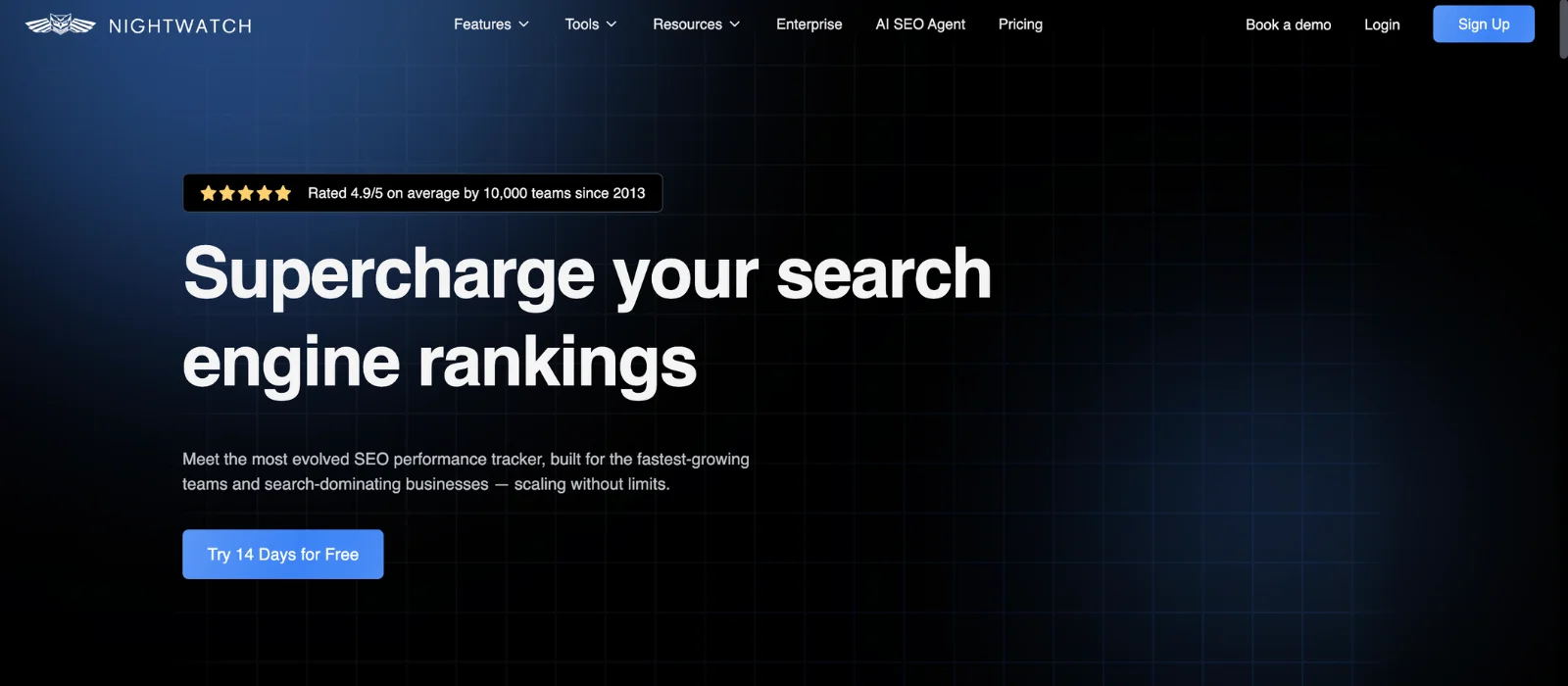
Key Features:
Best For: Global businesses, international SEO professionals, multi-regional marketing teams, companies with diverse geographic presence
Pricing: Tiered pricing based on regional coverage and language requirements
Pros:
Cons:
Rating: 4.3/5 - Excellent for global operations, limited value for single markets
Nightwatch excels at solving the complex challenge of tracking AI visibility across different regions and languages. The platform's strength lies in understanding how AI responses vary by geography, making it essential for international brands.
Quick Verdict: Best for small businesses and digital marketers wanting simple, efficient AI visibility tracking without complexity.
Overview: Goodie AI focuses on simplicity and efficiency, providing essential AI visibility tracking features in an easy-to-use interface designed for users who want results without complex processes.
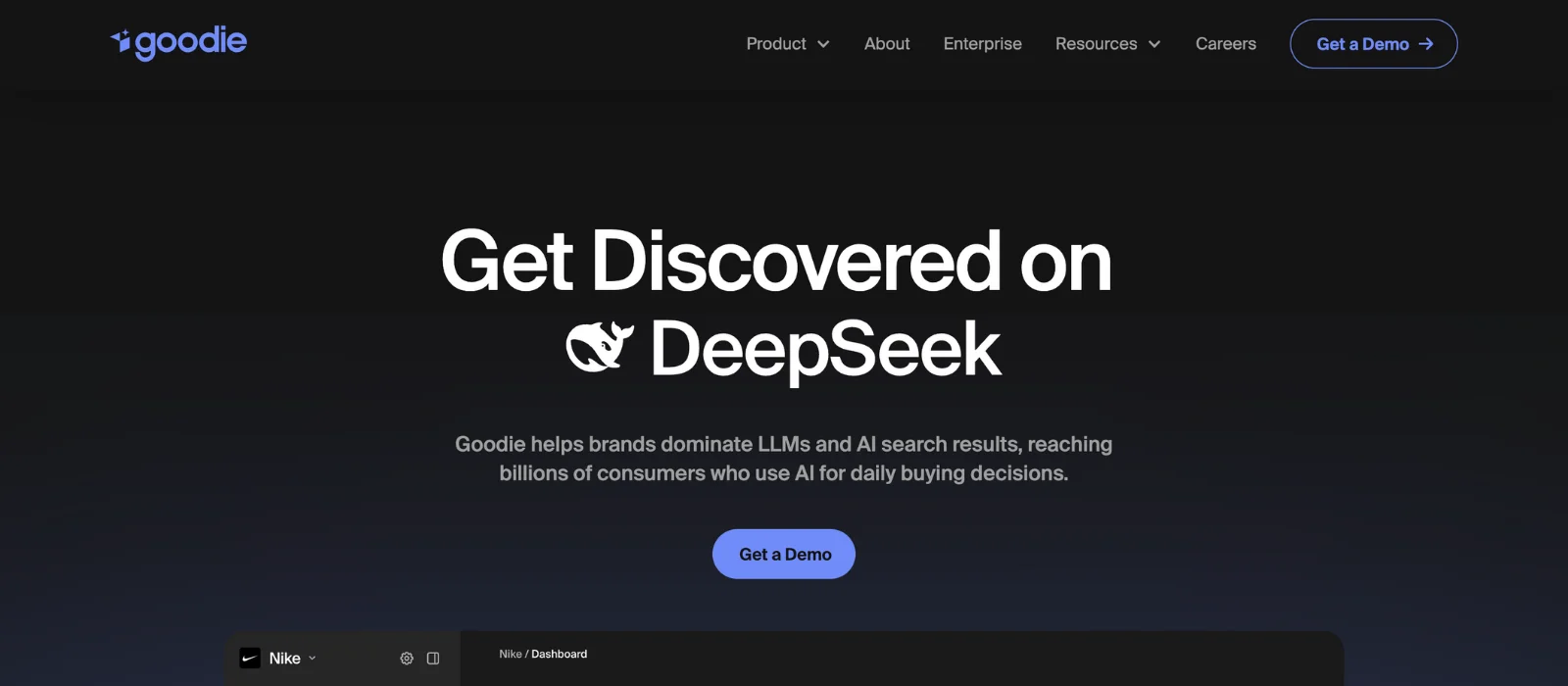
Key Features:
Best For: Small businesses, digital marketers, users preferring simple solutions, organizations wanting quick implementation
Pricing: Budget-friendly pricing structure designed for small business accessibility
Pros:
Cons:
Rating: 3.6/5 - Good for basic needs, limited scalability
Goodie AI serves businesses that want to start monitoring AI visibility without complexity or significant investment. The platform's simplicity makes it accessible to non-technical users, though this limits its capabilities for sophisticated monitoring needs.
Quick Verdict: Best for strategic planning teams wanting to predict and prepare for future AI search trends rather than just tracking current performance.
Overview: Rankscale uses AI to analyze and predict SEO trends, focusing on visibility and keyword performance across diverse digital channels with emphasis on future planning rather than current monitoring.
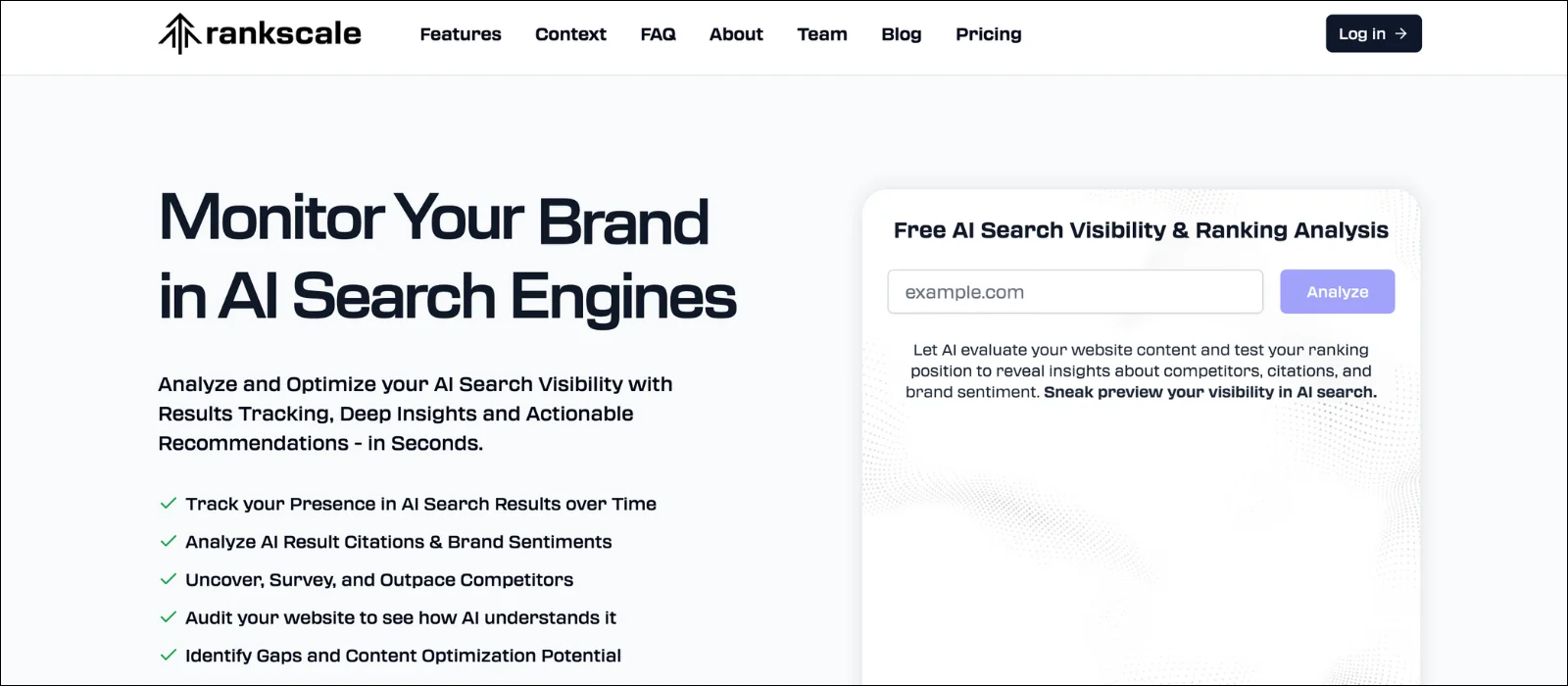
Key Features:
Best For: Strategic planning teams, future-focused businesses, companies prioritizing predictive analytics, long-term SEO strategists
Pricing: Custom pricing based on predictive modeling requirements and strategic planning scope
Pros:
Cons:
Rating: 4.0/5 - Excellent for strategic planning, limited for immediate needs
Rankscale's predictive approach helps businesses plan for future AI search trends rather than just reacting to current performance. The platform's value lies in its ability to anticipate changes, enabling proactive strategy development. It’s definitely earned its place among the best AI search visibility tools.
The AI search revolution isn't coming, it's here. With 85% of consumers using AI-powered search tools, brands that ignore AI visibility risk becoming invisible to their target audience.
The key is starting now. AI search adoption accelerates monthly, and early movers gain significant advantages. Choose a tool that fits your current needs and budget, but don't wait for perfect conditions.
Your competitors are already tracking their AI visibility. The question isn't whether you need these tools, it's which one you'll choose and how quickly you'll implement it.
Our blog covers a combination of industry trends and professional insights from behind-the-scenes experiences. We provide weekly updates on link building, content marketing, on-site and technical SEO, and more! Sign up for our newsletter and join our LinkedIn to be on top of industry trends!
Submit the form - Get Free Proposal
%202.png)
24 hours

Submit the form - Get Free Proposal
%202.png)
24 hours